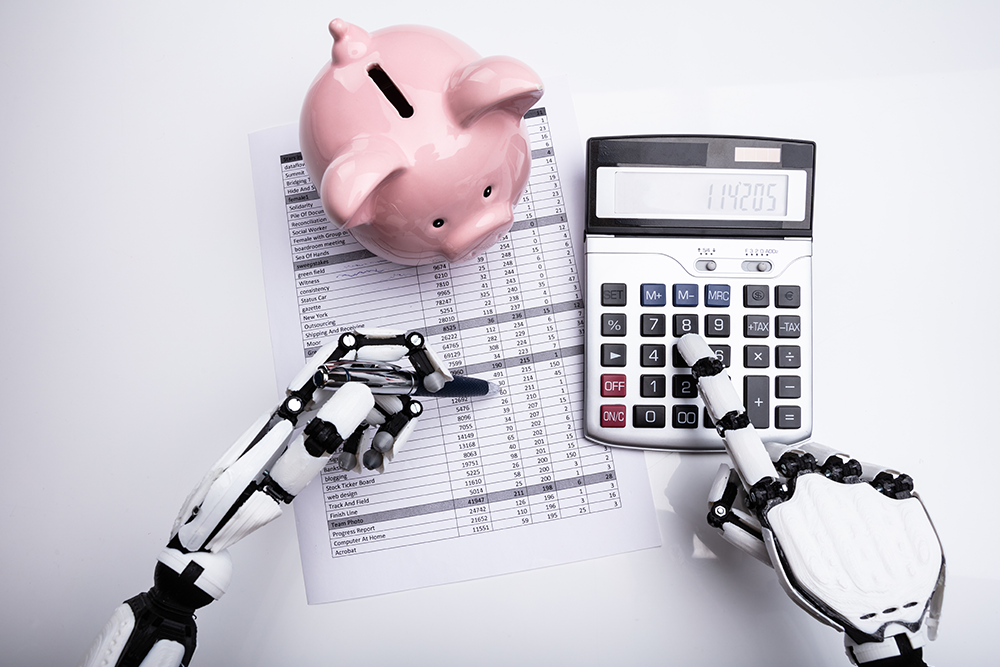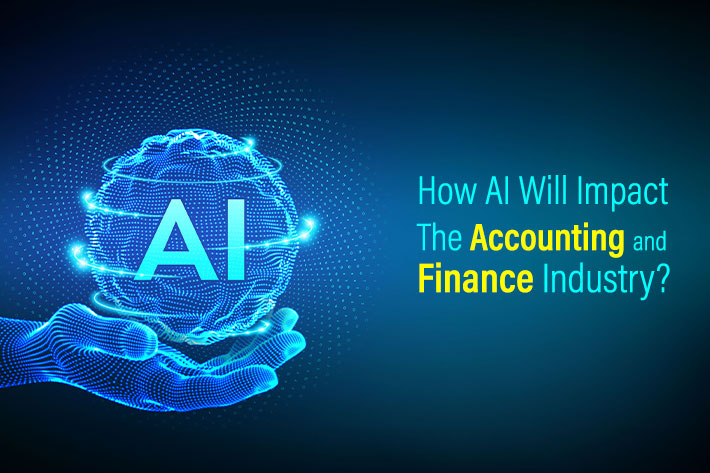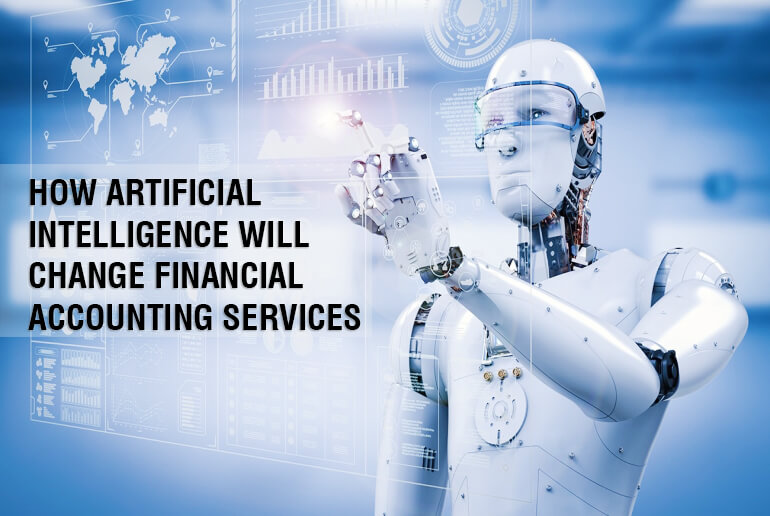AI has had a major impact on finance and accounting. Artificial intelligence is a computer science term that describes the ability of computers to replicate the human ability to learn, evaluate, solve problems and make decisions. The purpose of artificial intelligence in accounting is to improve the efficiency of basic routines and practices in a way that ultimately leads to better business decisions. In fact, AI-enabled financial and accounting systems are the way for businesses to stay strong in an increasingly competitive market because they save time and provide deep insights. In this article, we will detail the use of artificial intelligence in finance and accounting.
Table of Contents
What Can AI Do
To fully appreciate the growing application of AI as a viable business tool, it is important to understand what AI can do. Its capabilities can be embraced by the business world because they point to the creation and development of a more productive enterprise community.
For example, AI programs don’t just perform high-level mathematical calculations, they also read and write. AI programs can use their ability to parse news articles, emails, web links, and legal documents to select and present the most salient parts to understand. The same ability can be used to collect and analyze information to generate written content that accurately summarizes the data.
AI also offers opportunities to expand the senses, which can have many commercial applications. For example, AI’s ability to deploy machine vision could allow it to make informed decisions that can positively impact quality control and other supply chain elements that are important to business efficiency. AI-based programs for picking up and interpreting sounds can help busy professionals automate meeting times. Voice-based AI can allow businesses to schedule key appointments and complete phone-based tasks without allocating employee time.
While some capabilities of AI do involve autonomous machines, these devices are not ready to take over the world. Devices like drones and robots can be used to handle basic tasks at efficient speeds, freeing individuals to do more advanced tasks. This extra time allows individuals to have greater personal bandwidth, which can ultimately lead to stronger professional development.
Role Of AI in Finance And Accounting

New technologies are shaping every vertical of Industry 4.0, responding intelligently to the changing expectations of customers, suppliers, suppliers, and partners. Automation reduces the time it takes for employees to manually perform different and repetitive tasks by 80-90%. It also improves output quality by reducing human error.
Almost all accounting tasks, including payroll, tax, banking, and auditing, have been automated with artificial intelligence, disrupting the accounting profession and bringing about dramatic changes in the way business is done.
- AI improves productivity and output quality, even as it brings greater transparency and audibility.
- AI offers a wide range of opportunities and minimizes the traditional time-consuming responsibilities of finance teams to find more places for business growth.
- AI helps predict accurate financial statements. Through Machine Learning (ML), financial professionals can predict future trends based on historical data/records.
Robotic Process Automation (RPA) can accomplish repetitive tasks in an enterprise’s business processes, including document or data analysis, with incredible efficiency. With RPA, finance teams are freed from the shackles of non-value-added tasks. Instead, they can focus more on taking on strategic and consulting responsibilities.
Benefits of Artificial Intelligence for Accountants and Finance
The ability of AI to easily extract data has undoubtedly brought convenience to accountants. But it also adds significant value beyond convenience.
Reliable AI programs increase the efficiency of accounting roles. This frees accountants from activities such as collecting audit data or analyzing organizational expenses. These actions tend to be time- and energy-intensive, which can take time away from other important responsibilities, such as strategic financial development and maintaining regulatory compliance.
Integrating artificial intelligence into accounting can also improve accuracy and reduce human error. This further simplifies the accounting process, as minimizing errors naturally means less time to find, track and correct them. From a macro perspective, it may also make businesses less exposed to large-scale accounting issues, such as non-payment or tax penalties.
Another benefit of AI in accounting is the ability to reduce the risk of fraud. Since AI can audit every financial-related document, it can detect irregularities and alert accountants of their existence. While this can stop small, honest mistakes from turning into bigger problems, it can also quickly draw attention to suspicious behavior on a large scale.
AI can often provide real-time status of financial matters as it can process documents faster than ever before using natural language processing and computer vision, enabling daily reporting and at a lower cost. This insight allows the company to proactively adjust course if the data shows an unfavorable trend.
The automated authorization and processing of documents using AI technology will enhance several internal accounting processes, including purchasing, invoicing, purchase orders, expense reports, accounts payable and receivable, and more.
How to Leverage AI In Finance And Accounting

Businesses that join the digital transformation bandwagon by adopting AI have an advantage because they can apply AI to all aspects of accounting, including improved operational efficiency, lower costs, and a more significant return on investment. E.g:
- Accounts Payable/Accounts Receivable Processing
Invoice processing is considered one of the most time-consuming and labor-intensive parts of a business. AI-based invoice management systems help by increasing volumes, performing zero-error processing, and improving supplier relationships.
- Supplier Onboarding
AI-based approaches help expand customer reach, increase revenue, and evaluate suppliers with minimal human intervention.
- Purchasing Process
Procurement and procurement processes mean a lot of paperwork – sometimes in different systems that seem unrelated! With AI-driven workflows, finance teams can process unstructured data while automatically reducing governance/compliance/risk.
- Auditability
Data analysis defines the scope of the audit, and risk assessment (RPA) and analytics help track day-to-day transactions. Cognitive computing, predictive analytics, and artificial intelligence can track more complex transactions related to estimates and judgments.
- Monthly and Quarterly Cash Flow
AI-based tools allow businesses to quickly adjust financial activity, understand historical cash flow, and forecast future cash needs. AI applications also secure all financial processes by collecting and consolidating data from multiple sources.
- Expense management
When done manually, expense-related administrative processes are not only fraught with complex paperwork but are also prone to fraud and data breaches. Expense management automation ensures virtually zero errors and alerts the team in the event of a default.
- Chatbot Support
AI-powered chatbots help resolve user queries quickly and efficiently, including account balances, financial statements, account status, and more. Track unpaid invoices with artificial intelligence and automate the follow-up collection process to ensure accounts are balanced and settled in a timely manner. In addition, AI chatbots can answer customers’ daily questions and provide level 1 support.
Adopting artificial intelligence and automation tools in the enterprise can present some challenges, but none of them are insurmountable.
Inherent Challenges Of Adopting AI in Accounting
There is no doubt that business stakeholders have recognized the value of adopting AI-driven systems and applications. However, this also requires changing more than just the mindset of the CFO. Finance and accounting professionals need to make the shift and equip themselves with the necessary skills and knowledge.
Finance teams must recognize that they are now free to contribute to new business relationships, improve existing partnerships, and work from a vantage point, thanks in large part to artificial intelligence and the resulting Key insights.
Businesses must not only invest in technology, but also in the workforce required to process the aforementioned technologies. This means they must also provide teams with the proper training and support to effectively optimize productivity using AI.
As advanced technology develops, it will only become more complex, and more tools and systems will be available for finance and accounting. With the rapid expansion of artificial intelligence and automation to digital transformation, the foundation is laid for rapid learning and the adoption of new ways of cutting time and costs.
Finally, finance and accounting teams that adopt AI in practice will be better able to analyze large amounts of data, identifying patterns and trends. Even better, they will be able to use the latest technologies and tools to support a variety of work modes and geographies by taking over routine tasks that are better suited to machines.
Prepare For the Future of Accounting

Accountants around the world are seeing what AI can do for them in accounting. They are increasingly adopting the technology and finding they are getting better and more effective at their jobs. This is a sea change, and the role and importance of accounting are permanently shifting for the better.
Earning an advanced accounting degree, such as the Master of Accounting, helps students gain specialized knowledge and skills in accounting principles to experience the industry at the most innovative level. Additionally, when AI is allowed to perform basic or time-consuming accounting tasks, it can enable professionals to stand out and take on more important jobs. It helps them build accounting and financial strategies that take the organization to the next level.
Conclusion
Artificial intelligence and accounting and financial automation are just getting started. However, the technology is becoming more sophisticated, and the tools and systems available to support accounting are rapidly expanding. Accountants who resist these changes will not be able to keep up with other accountants who have the time, cost savings, and insight advantages that AI can provide.




